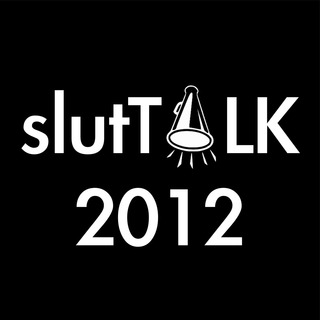As a English student, I’ve often been inclined to defend the value of discussion as means of political and social change. Yet the numerous protests and uprisings that have swept the globe in the past year – from the Arab Spring, to Occupy Wall Street, to the current student strike in Québec – all seem to have powerfully illustrated that in many ways, the time for talking is over.
When governments and institutions do not respond to the needs of the people, we take to the streets. Slutwalk is no exception to this phenomenon.
The Slutwalk movement, which has sparked marches in cities worldwide, from Mumbai to Melbourne, originated in response to a Toronto police officer who told York University students that women could “avoid being raped if they didn’t dress like sluts.”
After the inaugural march in Toronto, cities across Canada quickly followed suit, including Vancouver. On May 15, 2011, nearly a thousand enthusiastic participants flocked to the streets of Vancouver, and media coverage of the event was significant.
Fierce debate
Criticism of Slutwalk quickly followed. While the show of community support was applauded, fierce criticisms were leveraged against the attempts to reclaim the word “slut” as a term of sex-positive empowerment. Others claimed that the focus on reclaiming a word detracted from the need to end gendered and sexual violence.
At the heart of all sexual violence, however, is a debate over the ways in which language itself informs actions. In many ways, Slutwalk is waging a battle that is unlike other protest movements. On the one hand, we are working to condemn the actions of those who perpetrate sexual violence. On the other hand, we are aiming to isolate, deconstruct and address the ways in which language itself – from insults to street harassment to rape myths – can contribute to or condone sexual violence.
It would be easy to focus on actions alone, and to recycle the schoolyard adage that “sticks and stones may break my bones / but words can never hurt me.” It would be easy to focus on the symptom of sexual violence without recognizing the greater sociocultural, political, and economic issues that are directly related to these crimes, and the ways in which the words we use reflect our different understandings and experiences of these issues. It would be easy to say that we can all reclaim language as we see fit, as if language were a phenomenon that occurs in isolation, rather than in relation.
Vancouver conference: SlutTALK
And so, in an attempt to highlight the connections between language and sexual violence, Slutwalk Vancouver has rebranded itself with two “SlutTALK” events, the first of which was a film night and discussion at the Rio Theatre on May 15.
The main event, “SlutTALK: Conversations One Year After the March,” is an “unconference” scheduled for Saturday, May 26 at the Wise Hall in Vancouver, from 1-4 PM.
The unconference format is a participant-driven community discussion in which a wide variety of topics will be addressed, not least of which will be the Slutwalk name itself.
With representatives from WAVAW, the BC Coalition of People with Disabilities, the Elizabeth Fry Foundation, and the F-Word Media Collective, as well as speakers such as Sarah MacLeod (the 13-year old whose YouTube video on slut-shaming received international attention) the unconference promises to offer a great deal of engaging discussion.
The unconference format also means that attendees will be invited to propose topics, including criticisms of the Slutwalk name.
In my view, the goal of discussion is not always to achieve a kind of pleasant consensus, but rather to point to the places in which we all still struggle to make meaning. It is from this fertile ground that truly revolutionary actions – changing the way our society thinks about and reacts to sexual violence – can be sprung.
For more information on this year’s SlutTALK events, readers can find us on Facebook at Slutwalk Vancouver, on Twitter at @SlutWalkVan, or online at slutwalkvancouver.net. Slutwalk Vancouver has recently decided to also hold a march this year, tentatively scheduled for June 30. More information will be forthcoming.
Lucia Lorenzi is an interdisciplinary artist and a doctoral student in English at the University of British Columbia. Her research, art, and activist work all focus on the biopolitics of gender and sexuality.
Cultivate Canada’s media. Support rabble.ca. Become a member.



